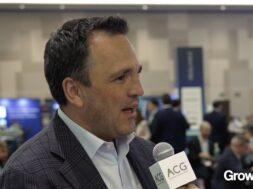The New Frontiers of Value Creation
Amid market uncertainty, operators point to pricing strategy, employee retention and cybersecurity as unsung paths to performance improvement

Attendees gathered virtually at ACG’s Operators’ Summit: Value Creation Acceleration last month and heard perspectives from experts on ways to raise profitability and mitigate risk during market volatility. Operating partner speakers tackled topics including pricing strategy, boosting employee morale and confronting cybersecurity concerns via three panels on the morning of March 2.
Panelists speaking on the “Sales and Pricing Strategies” panel had a clear message for business leaders who don’t view price hikes as a meaningful way to drive value in their companies: Think again.
Ben Humphreys, senior operating executive at Monomoy Capital Partners, pointed to the hesitance to increase prices as a common challenge within private equity. “There’s this prevailing sentiment that revenue growth is uncertain and that we should be focused on cost or productivity levers, because those are really certain areas of value creation,” he said.
Yet business leaders tend not to focus on the extent to which price increases can benefit their organizations. “It’s not to say that price increases don’t have a volume impact—they do,” Humphreys continued. “It’s just that commercial leadership often thinks about these impacts from the perspective of the impact to the top line and not necessarily from the impact to the bottom-line performance of the business.”
Rising inflation has paved the way for many businesses to pass along their increased costs to customers out of necessity and prompted some to consider further strategic pricing adjustments.
Humphreys and his fellow panelists—Tracy Burzycki, operating partner at Apollo Global Management, and Zorian Rotenberg, operating partner, GTM, for Charlesbank Capital Partners—agreed that data and analytics are critical tools for developing an effective pricing strategy. Apollo, for example, is asking its businesses to produce regular reports that will help sales reps perform more effectively in the field, and to conduct market research that shows what customers are willing to pay, according to Burzycki.
Digging into the data can validate assumptions around pricing and the approach to increases, rather than relying on gut instincts or outdated information. “That’s my favorite question right now: ‘How do you know?’” said Burzycki. “‘Can you show me examples of how you know that and are you sure that’s still true?’”
Pause and Refocus
Today’s uncertain economic environment requires those in revenue-focused roles to refocus on a key set of priorities, according to Rotenberg.
Among those priorities are developing and maintaining a winning sales team, and focusing on customers, particularly existing accounts where there’s opportunity to maintain or grow sales. Rotenberg also pointed to improving sales execution by refocusing on sales pipelines, developing a refined sales process, and ensuring the sales team spends as much time as possible on revenue-generating activities.
Related content: Fundraising Trends and Value-Creation Focus Weigh on Private Equity Hiring
Panelists on other panels agreed tracking strategies that work is important when it comes to sales. “I’m seeing a lot more monitoring than ever before when it comes to sales,” said Bain & Company expert partner Kunal Mehta, who spoke on the Acquiring & Retaining Talent panel. “When you start to monitor the sales calls, [and] who is successful and what they’re saying, you can bring lessons back to the field to shorten your time to ramp.”
I’m seeing a lot more monitoring than ever before when it comes to sales.
Kunal Mehta
Bain & Company
One lesson Mehta has discovered in his Go-to-Market (GTM) specialty at Bain and other firms is that learning and development have to improve. It’s important not to take a one-size-fits-all approach when it comes to training reps, Mehta said. Rather, the process should involve developing different L&D programs depending on the reps’ level of knowledge, skill and experience. GTM involves with launching a product or service and developing a strategy to take it to market.
Keeping the Idealists
Other speakers on the talent panel also noted the significance of retaining employees. During the post-pandemic Great Resignation, data showed that about 4.5 million people were leaving their jobs on a monthly basis in 2021 and 2022, which was 25% higher than pre-pandemic levels, according to Joe McDougall, operating partner at Trive Capital. “Trying to keep the good folks you have is more important than ever and harder than ever,” he said.
According to McKinsey & Company surveys, workers today want more flexibility and autonomy, McDougal said. Younger generations are also more idealistic and focused on satisfaction in their work as opposed to the size of the paycheck. “That’s very different from what we’ve grown up with in the workforce,” McDougall said. In order to keep these younger, more idealistic employees, McDougall said he likes annual engagement surveys, frequent and honest communication with staff, one-on-one meetings with bosses, town hall meetings, e-mail and video blasts on what’s going on at the company and other tools.
“The centerpiece is authenticity,” said Darryl Smith, managing director of operations at Pacific Avenue Capital Partners, another talent panel speaker. “We can’t be too open and transparent with our employees, especially at a time like today,” he added.
Guarding the Crown Jewels
When it comes to educating themselves about cybersecurity and the best protocols to follow, many business leaders struggle with knowing where to start, even amid the growing risk of cyberattacks that threaten a company’s operations.
Speaking on the “Cybersecurity Best Practices” panel, Jessica Pizzo, resource partner for Court Square Capital Partners, noted that her firm has a set of security operations items for companies to put in place to prevent or recover from an attack. It’s a process that begins during the cyber due diligence process, she added.
A robust cybersecurity program isn’t one-size-fits all and varies by industry. “We have a top-level view of ‘thou shalt have the following items implemented,’ and then we include a second-level view that says, ‘if you’re a healthcare company, you have to also consider this. If you’re a technology company, also consider this,’” Pizzo said. “And then I’m meeting with each CTO or CIO individually to say, ‘what are our crown jewels? What additional protections do we need on top of that baseline?’”
Related content: To Drive Value in a Down Market, Get Back to Basics
Introducing a control framework can be a stumbling block for companies at the early stages. Brit Yonge, operating partner at Corsair Capital, stressed the importance of establishing the high-level strategy of a cybersecurity program with buy-in from all key stakeholders in the company, not just the technical experts.
He suggested setting baseline expectations in a way that everyone can understand: “This is the philosophy, this is the strategy of what a good cyber program looks like,” he said. “We can talk about the compliance, we can talk about the reports, all that, later. … Let’s just take the technical garble out of it.”
The goal of having strong cybersecurity protections is to avoid a breach, but should one occur, a business needs to be ready. And nothing can replace hands-on practice.
Yonge recommended conducting tabletop exercises that simulate an incident and how the business will respond. “It’s like you’re playing Dungeons and Dragons. You have an incident at your firm, and you’re going to play it out and who does what,” he said. “You very quickly realize that whatever policy that no one read—it really isn’t all that useful unless someone’s actually practicing.”
Mike Ferris, founder and CEO of Abacode, moderated the discussion, which also featured panelists Chijioke Asomugha, cofounder and partner at private equity firm FVLCRUM, and Carrie DiLauro, director of operations and marketing at Hamilton Robinson Capital Partners.
Katie Mulligan is ACG’s content director, based in Chicago.
Anastasia Donde is Middle Market Growth’s senior editor.


